Advanced Keyword Research Techniques for 2024
What’s the Key to Keyword Research in 2024?
We’re in an exciting time where the digital landscape is continually evolving as a result of new technology and user behaviors, and understanding how to do keyword research is crucial for businesses aiming to boost their online visibility. For years, traditional keyword research methods, centered around identifying high-search volume terms, were the go-to strategy. However, search engine algorithms have developed significantly, demanding a more sophisticated approach.
Today, search engines are increasingly focused on understanding user intent rather than simply matching keywords off generic sources. This shift necessitates a departure from conventional keyword research services and the adoption of advanced keyword research techniques. If businesses want to stay ahead of the competition and ensure their content resonates with their target audience, it’s imperative to go deeper into the nuances of user behavior and search engine expectations.
In this comprehensive guide, we’ll discuss the cutting-edge keyword research techniques and strategies that our keyword research services use to propel your efforts to new heights. By mastering advanced techniques, you’ll gain a competitive edge and unlock the potential to dominate search engine results pages (SERPs).
Let’s get right to how advanced keyword research can revolutionize your online success.
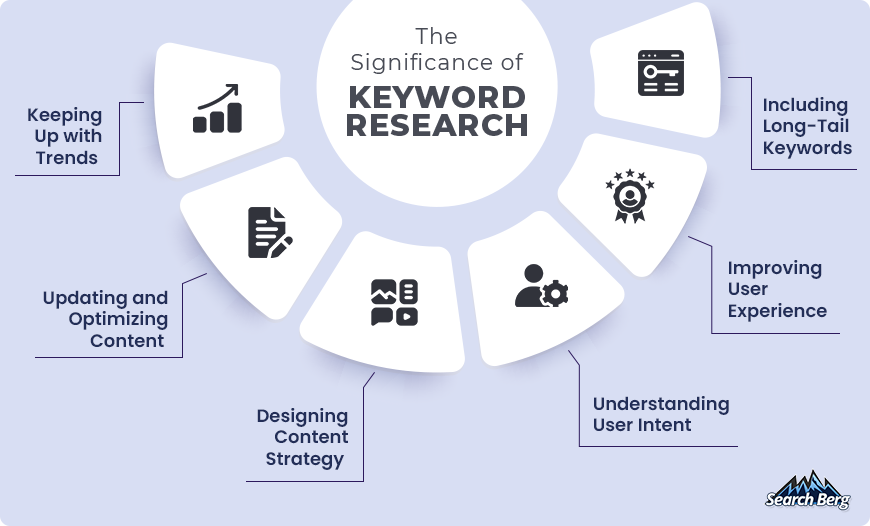
Recommended Read:How to Optimize SEO Content with Effective Keyword Themes
Unlocking Meaning with Advanced Keyword Research Techniques
To truly excel in keyword research techniques, it’s essential to move beyond simple keyword stuffing and dig deeper into the semantic nuances of language. Advanced keyword research techniques like Latent Semantic Indexing (LSI), topic clusters, and co-occurrence analysis can provide invaluable insights into user intent and content structure.
Latent Semantic Indexing (LSI)
This is a keyword research technique that helps search engines understand the underlying context of a webpage. By identifying related terms and synonyms, LSI keywords can enhance your content’s relevance and improve search rankings. For instance, if your primary keyword is “digital marketing,” LSI keywords may include “online marketing,” “content marketing,” or “SEO” as alternatives, and incorporating these related terms naturally into your content can significantly boost your search visibility.
Using Topic Clusters
Another powerful technique is topic clusters. This approach involves organizing content around central themes or pillars. By creating clusters of interlinked articles, you can establish your website as an authoritative resource on specific topics and improve SEO keyword research by offering you a central theme. This not only improves user experience but also enhances your chances of ranking for a wider range of keywords. Identifying relevant topic clusters can be achieved through careful keyword analysis and an understanding of your target audience’s interests.
Co-occurrence Analysis
This is a method of how to research keywords that examines how often certain words appear together within a given context. By identifying frequently co-occurring terms, you can uncover valuable keyword combinations and potential topic ideas. Tools like Google Keyword Planner and specialized keyword research services can assist in conducting co-occurrence analysis. For example, if “vegan recipes” and “natural ingredients” frequently appear together, it suggests a potential opportunity to target long-tail keywords like “vegan recipes with natural ingredients.”
By mastering these advanced keyword research techniques, you’ll be well-equipped to create content that not only ranks well but also delivers exceptional value to your audience.
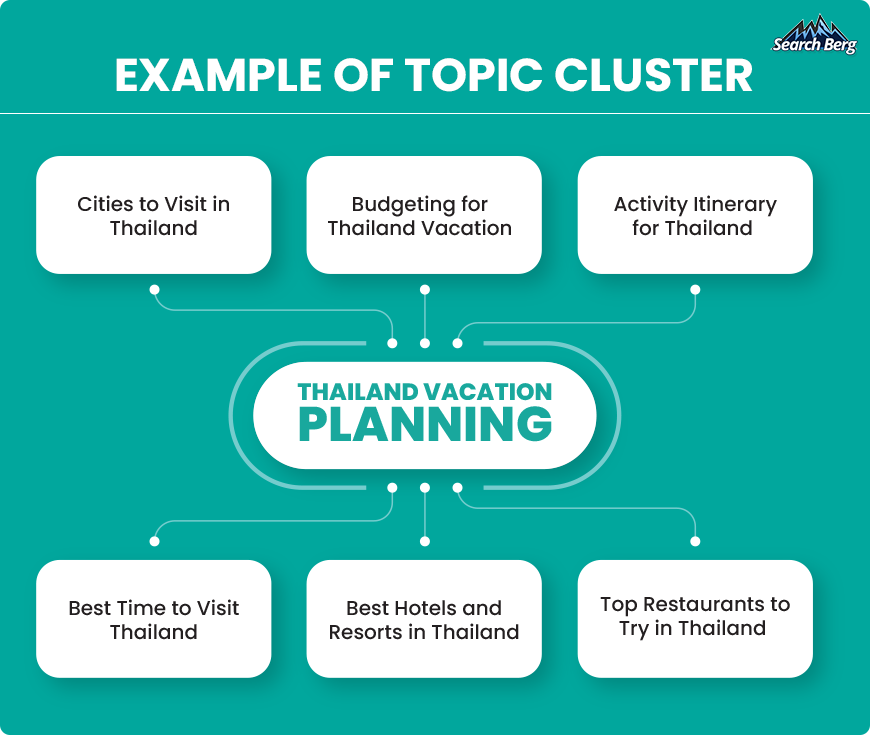
Recommended Read: How to Find the Right Keywords for Google Ads
Leveraging Data Analytics for Keyword Research
The digital age has bestowed upon us a wealth of data, and keyword research techniques are no exception. To make informed decisions, data analytics is indispensable. By analyzing search volume, click-through rates (CTRs), and conversion rates, you can gain valuable insights into keyword performance.
- Search volume indicates the popularity of a keyword. However, high search volume doesn’t always equate to high potential. It’s essential to factor in variables like competition and relevance.
- Click-through rates reveal how attractive your search results are to users. A low CTR might indicate the need for improved title tags and meta descriptions and generally more engagement.
- Conversion rates measure the effectiveness of your keywords in driving desired actions. Tracking conversions helps identify keywords that generate the highest return on investment (ROI). They also help show you how to do keyword research based on what’s driving engagement and what isn’t.
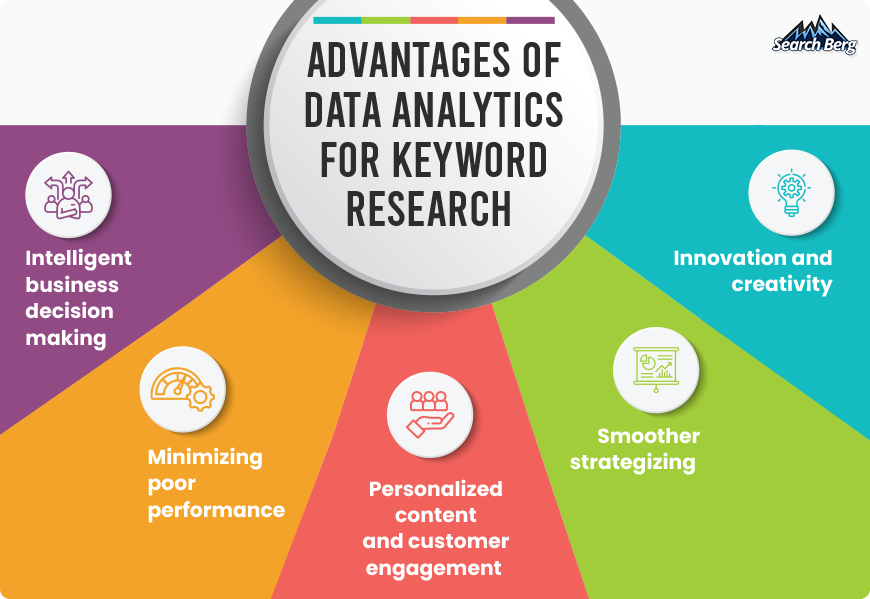
Machine Learning Applications
Machine learning is revolutionizing various industries, and keyword research techniques are no exception. By processing vast amounts of data, machine learning algorithms can uncover patterns and trends that humans might overlook.
- Predictive analytics leverages historical data to forecast future keyword trends. This enables you to stay ahead of the curve and capitalize on upcoming opportunities as they arise.
- Keyword forecasting helps anticipate the popularity of keywords over time. By identifying popularly growing keywords, you can position your content to rank higher when search volume increases.
By combining data analytics and machine learning, you can elevate your keyword research process from a guesswork-based approach to a data-driven strategy.
Recommended Read: Google Reveals New Metrics for Evaluating Search Quality
Understanding User Intent
The scope of SEO keyword research has gone through a significant transformation. While keyword volume was once the primary metric, the focus has shifted to understanding user intent and behavior to truly target the right phrases and words. What is this keyword research technique in SEO? Essentially, it’s about discovering what people are searching for and why.
The Shift from Keywords to Intent
The concept of user intent revolves around determining the purpose behind a search query. Understanding why someone is searching for a particular term is crucial for creating content that truly resonates and appeals to them. Instead of solely targeting high-volume keywords, effective SEO keyword research involves identifying the intent behind those keywords.
There are primarily three types of search intent:
- Informational: Users seeking information or knowledge on a specific topic. For example, “What is digital marketing?”
- Navigational: Users looking for a specific website or page. For instance, “Google homepage.”
- Transactional: Users are ready to make a purchase or take a specific action. This includes keywords like “buy iPhone” or “best winter jacket.”
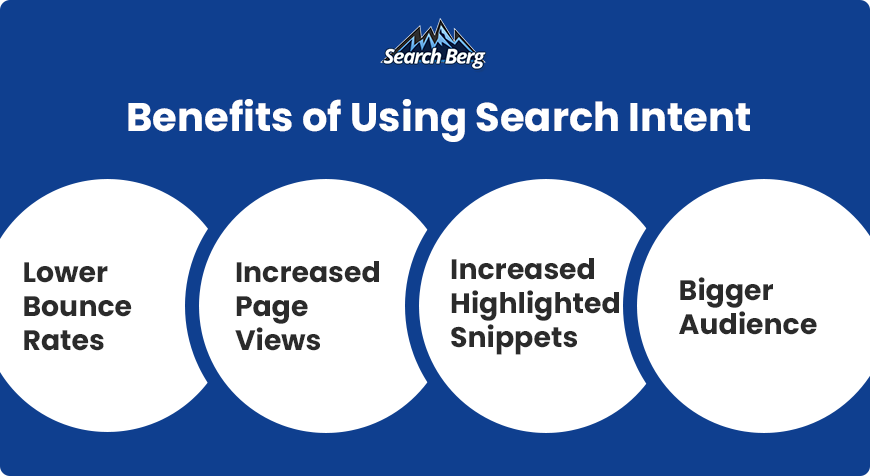
Keyword Mapping to Intent
Aligning your content with user intent is the key to long-term, sustainable SEO success. By mapping keywords to specific user needs, you can create content that delivers value and satisfies searchers. For example, if you identify a high-volume keyword like “running shoes,” you’ll need to determine whether users are looking for information about different types of running shoes (informational), a specific brand (navigational), or a place to buy running shoes (transactional).
Once you’ve determined the intent, you can tailor your content and keyword research techniques accordingly. For informational queries, provide comprehensive and informative content. For navigational searches, ensure your website is easily discoverable and has high visibility, and for transactional searches, highlight your product’s USPs and make the purchasing process seamless.
All of these methods of optimizing research for SEO keywords increase your chances of ranking higher in search engine results and driving more qualified traffic to your website.
Finding Your Niche for Impactful Keyword Research
Standing out in a crowded digital arena requires identifying untapped keyword opportunities. This keyword research technique involves delving deeper into your industry and discovering specific areas where you can establish authority and set yourself up as a credible source.
- Identifying untapped keyword opportunities means finding keywords with low competition but high potential. This can be achieved by exploring niche-specific forums, social media groups, and industry-related subreddits.
- Tools and techniques for niche keyword research include using keyword research tools with advanced filtering options, competitor analysis, and manual exploration of search results.
Leveraging Long-Tail Keywords
While high-volume keywords might seem attractive, long-tail keywords often hold more potential as a keyword research technique. These longer, more specific phrases typically have lower search volume but higher conversion rates and are able to target more intuitive search results. For instance,“what is keyword research,” “how to do keyword research,” and “what is keyword research in SEO” are examples of longer phrases that are worth incorporating.
- The power of long-tail keywords lies in their ability to attract highly targeted traffic. By understanding the specific needs of your audience, you can create content that directly addresses their queries.
- Strategies for optimizing long-tail keywords include incorporating them naturally into your content, creating dedicated landing pages, and building internal linking structures.
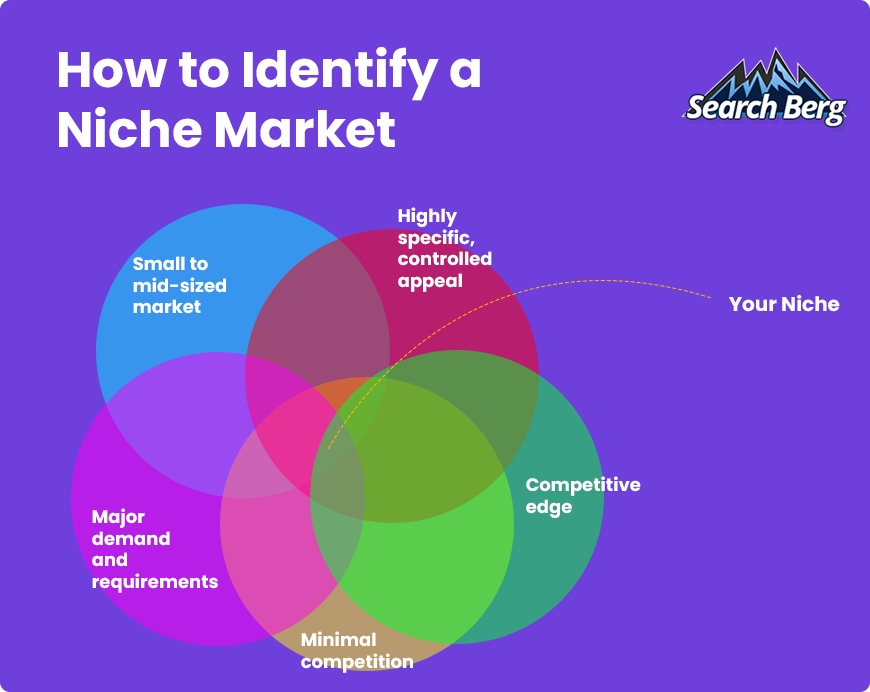
Keyword Competitiveness Analysis
Understanding the competitive landscape is crucial for effective keyword research. Assessing keyword difficulty helps determine which keywords are realistically attainable and worth investing your time and resources in.
- Assessing keyword difficulty involves evaluating factors such as the number and authority of competing websites. Tools can provide estimates, but manual analysis is often necessary—and fortunately, Search Berg’s experts are right here to do that.
- Developing a targeted keyword strategy means focusing on a mix of high-potential, low-competition keywords. Prioritize keywords that align with your business goals and target audience.
Recommended Read: How to Find and Use Competitors’ Keywords to Drive Traffic
Adapting to the Zero-Click Era
The search landscape is evolving rapidly, with a growing emphasis on providing direct answers to user queries. Understanding zero-click searches and optimizing for them is essential for staying competitive.
Understanding Zero-Click Searches
Zero-click searches occur when users find the information, they need without clicking on a website. This trend is fueled by the rise of featured snippets and voice search.
- Defining zero-click searches and their impact on SEO involves recognizing that traditional click-through rates are becoming less relevant. The focus should shift to capturing visibility in search results.
- Analyzing the rise of featured snippets and voice search highlights the importance of concise and informative content. Optimize your content through keyword and content services to appear as a featured snippet and ensure it can be easily understood by voice assistants.

Optimizing for Zero-Click
To thrive in the zero-click era, you need to adapt your content strategy and keyword research techniques.
- Strategies to increase visibility in zero-click searches include creating comprehensive and informative content, optimizing for featured snippets, and leveraging schema markup.
- Creating content that answers user queries directly means addressing the searcher’s intent clearly and concisely. Use headings, bullet points, and numbered lists to improve readability.
The Power of Social Media for Social Listening and Keyword Discovery
Social media platforms offer a goldmine of insights into user behavior and language for keyword research techniques. By actively listening to conversations, you can uncover emerging trends, identify relevant keywords, and gain a deeper understanding of your target audience.
- Using social platforms for keyword research involves monitoring discussions, analyzing hashtags, and engaging with users and what they’re saying.
- Monitoring trends and conversations helps you stay ahead of the curve. By tracking popular topics, you can identify potential keyword opportunities and create content that resonates with your audience.
Hashtag Analysis
Hashtags are powerful tools for discovering relevant keywords and reaching a wider audience.
- Leveraging hashtags to identify relevant keywords involves analyzing popular hashtags within your industry and exploring related terms.
- Tools for hashtag research can help you identify trending hashtags and measure their performance.
Influencer Keyword Research
Influencers often shape trends and preferences. By analyzing their content, you can uncover valuable keyword ideas.
- Analyzing influencer content for keyword ideas involves identifying the keywords and phrases influencers use to engage their audience, making for a clever keyword research technique.
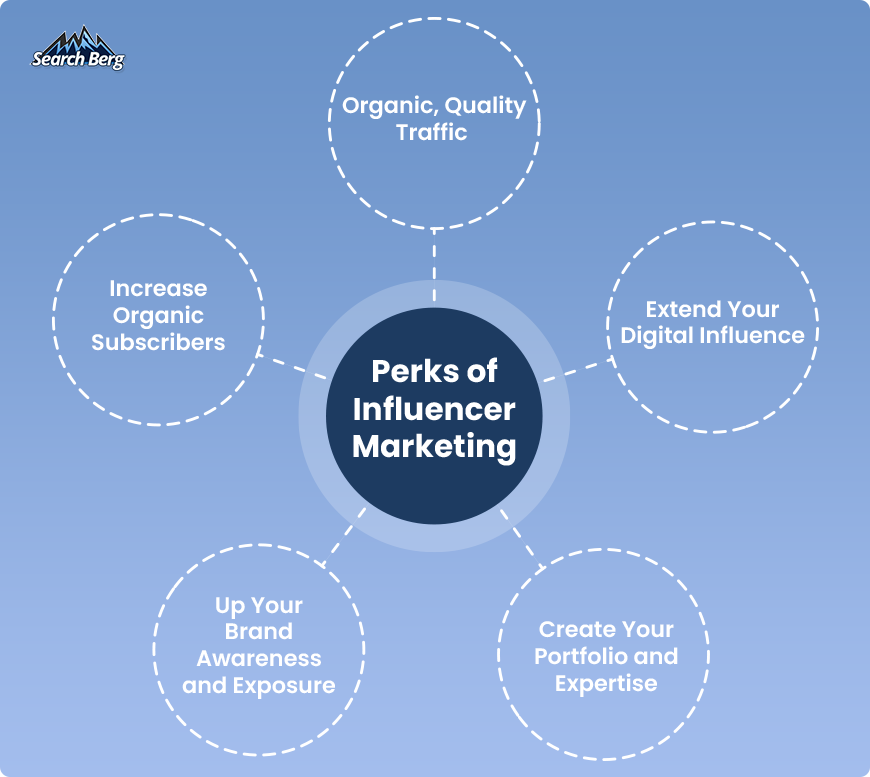
Recommended Read: How To Do Local SEO Keyword Research: A Step-By-Step Guide
Localizing Your Keyword Strategy
Local SEO is crucial for businesses targeting a specific geographic area. By optimizing your online presence for local search, you can increase visibility and attract customers.
- The role of local search in overall SEO involves understanding how search engines prioritize local businesses and how to rank higher in local search results.
- Targeting location-specific keywords means incorporating city, state, and neighborhood names into your keywords to improve local search rankings.
Understanding Local Culture and Slang
To truly connect with your local audience, it’s essential to understand their language and preferences.
- Incorporating local language and preferences involves using local dialects, slang, and cultural references in your content. You know New York slang is different from Texas slang, and incorporating terms and phrases that are region-specific is a clever keyword research strategy.
- Using regional search behavior to your advantage means tailoring your keyword strategy to reflect how people search for products or services in your area and attracting in-person traffic, too.

Local Keyword Optimization Tips
- Create high-quality local content: Develop content that addresses the needs, pain points, and interests of your local audience.
- Optimize your Google My Business listing: Ensure your business information is accurate and complete on Google My Business and contains relevant regional keywords.
- Build local citations: Encourage customers to mention your business on online directories and review sites.
- Encourage online reviews: Positive reviews can significantly boost your local search rankings.
- Optimize for voice search: Voice search is becoming increasingly popular, so optimize your content for voice queries.
Recommended Read: How to Optimize Google My Business for Voice Search
FAQs About Keyword Research Techniques
1. What is the difference between traditional keyword research and advanced keyword research techniques?
Traditional keyword research focuses on high-search volume terms, while advanced keyword research techniques delve deeper into user intent, semantic relationships, and data analysis to uncover more relevant and competitive keywords.
2. How can I identify and target my ideal niche using keyword research?
To identify your niche, use tools to find low-competition, high-potential keywords. Focus on long-tail keywords and analyze competitor strategies. Building topic clusters around your niche can also help establish authority.
3. What is the impact of zero-click searches on keyword optimization?
Zero-click searches mean users find information without clicking through to a website. To optimize for this, focus on creating comprehensive, informative content, aiming for featured snippets, and leveraging schema markup.
Monitor social platforms for trending topics, analyze hashtags, and study influencer content. Engage with your audience to understand their language and preferences.
5. What are some essential tips for local keyword optimization?
Optimize your Google My Business listing, incorporate location-specific keywords, build local citations, encourage online reviews, and create high-quality local content. Additionally, consider local search behavior and language preferences.
Make Your Keyword Research Strategy More Impactful—Choose Us!
Work with our keyword research agency to improve your current strategy and get the access and reach you need.
Our team is committed to creating the most impactful keyword strategy that is tailored to your business and factors in your various products and services. Our keyword research techniques are some of the most cutting-edge and aligned with the latest guidelines. Get in touch with us to learn more.
Invest in a Cutting-Edge Keyword Strategy
Explore our keyword research strategies and services to stay ahead of the game.
No spam, just expert advice!












